Thursday, July 22, 2021
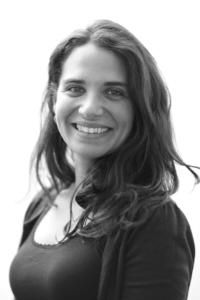 Rebecca Abergel, Ph.D
Rebecca Abergel, Ph.D
Associate Professor, Nuclear Engineering Department, University of California, Berkeley
Faculty Scientist & Heavy Element Chemistry Program Lead, Chemical Sciences Division, Lawrence Berkeley National Laboratory
Ph.D., Chemistry, University of California, Berkeley, 2006
Rebecca Abergel was raised in France and graduated from the École Normale Supérieure of Paris in 2002. She conducted her graduate studies in inorganic chemistry at UC Berkeley, under the supervision of Prof. Kenneth Raymond. Her doctoral work focused on the synthesis and characterization of siderophore analogs to probe microbial iron transport systems and design new iron chelating agents. As a joint postdoctoral researcher between the UC Berkeley Chemistry Department and the group of Prof. Roland Strong at the Fred Hutchinson Cancer Research Center, she investigated the bacteriostatic function of the innate immune protein siderocalin in binding siderophores from pathogenic microorganisms such as Bacillus anthracis, for the development of new antibiotics. Abergel joined the Lawrence Berkeley National Laboratory in 2009 and the Nuclear Engineering Department of UC Berkeley in 2018. She became the LBNL Heavy Element Chemistry Group Leader in 2018. Her research program is dedicated to investigating the fundamental coordination chemistry and biochemistry of heavy and f-elements, with therapeutic and environmental applications such as chelation, separation, bioremediation of toxic metals, and design of alpha-immuno therapy agents. She leads a large collaborative effort on the development of new drug products for the treatment of populations contaminated with heavy metals and radionuclides. One of these products was granted an Investigational New Drug status from the U.S. Food and Drug Administration in 2014 and is now entering a Phase I clinical trial. She currently serves as the chair of the LBNL Radioactive Drug Research Committee and is an associate editor for the International Journal of Radiation Biology and a corresponding member (USA) for Radioprotection.
Abergel was elected as a Fellow of the American Association for the Advancement of Science in 2019 and received two U.S. Department of Energy 2020 Secretary of Energy Achievement Honor Awards for her contributions as a member of the National Virtual Biotechnology Laboratory and DOE National Laboratories’ COVID-19 Clinical Testing teams. She is the recipient of a WCC Rising Star award from the American Chemical Society (2017), an Early Career award from the U.S. Department of Energy (2014), and was selected as an Innovator under 35 – France by the MIT Technology Review in 2014. She received a Junior Faculty NCRP award (2013) from the Radiation Research Society, and a Young Investigator Research Fellowship (2010) from the Cooley’s Anemia Foundation.
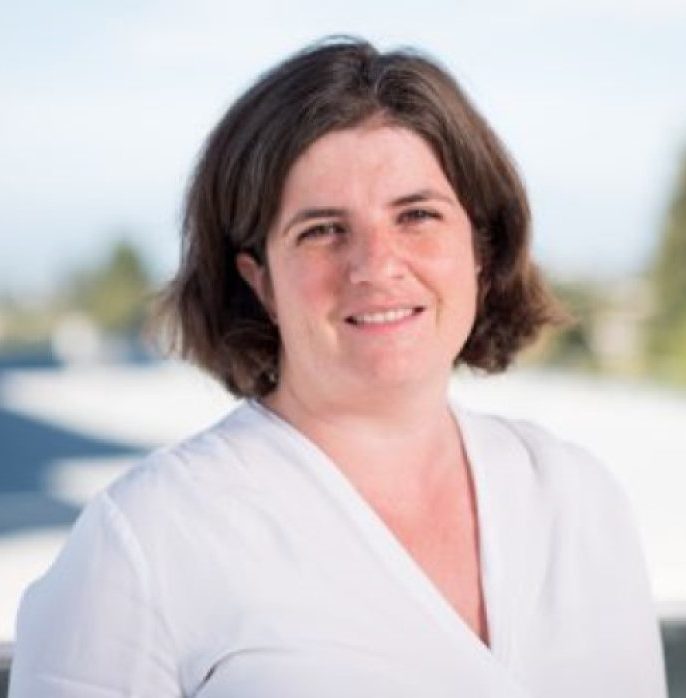
Estelle Couradeau, Ph.D
Assistant Professor, Ecosystem Science & Management, Penn State University
Ph.D, Geomicrobiology, University of Paris-Diderot, France
Estelle Couradeau completed her Ph.D. in Geomicrobiology at the University of Paris-Diderot (France), she worked on the intricate relationship between microbes and their mineral substrate. A topic that she further explored as a postdoc at the Arizona State University. During her time in Arizona she started working on soils and applied her analytical skills to arid land soils built by microbes. She became passionate about soils and their potential to be a lifeline for current global challenges. She further pursued that topic as a postdoc at the Joint Genome Institute (LBNL) and worked on contaminated soils while completing her training in microbiomes characterization including omics techniques. She joined Penn State in early 2020 as an assistant professor in the Ecosystem Science and Management department. Her group focuses on the study of soil microbiomes, trying to understand which microbes are active and how their metabolism might be affected by the rapidly changing environmental conditions.
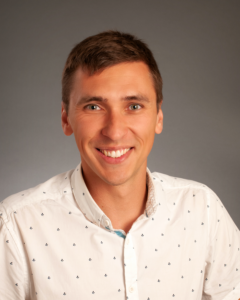
Michal Kopera, Ph.D
Assistant Professor, Mathematics, Boise State University
Ph.D, Engineering/Scientific Computing, University of Warwick, UK
Michal has earned a Ph.D. In Engineering (Scientific Computing) from the University of Warwick, UK in 2011. He then moved to the Naval Postgraduate School in Monterey, CA as a National Research Council Postgraduate Fellow. He also held a Visiting Fellow position at the Isaac Newton Institute for Mathematical Sciences in Cambridge, UK, and was an Assistant Researcher at the University of California, Santa Cruz. Michal is interested in computational and applied mathematics, specifically numerical methods for ocean modeling, high-performance scientific computing, computational fluid dynamics, adaptive mesh refinement, and scientific software development.
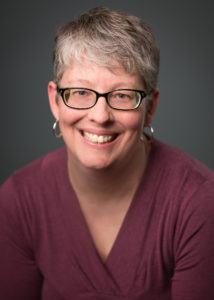 Dr. Melissa S. Lucash
Dr. Melissa S. Lucash
Research Assistant Professor, Department of Geography, University of Oregon
Ph.D, Forest Ecology & Management, SUNY College of Environmental Science & Forestry
M.S., Environmental Science, Oregon State University
Dr. Melissa S. Lucash is a Research Assistant Professor at the Department of Geography, University of Oregon, Eugene. Her lab conducts research, both basic and applied, that integrates the spatial and temporal signatures of natural disturbances and human activities into our understanding of terrestrial ecosystems. Dr. Melissa began her research career studying how elevated carbon dioxide affects leaf morphology and physiology (M.S. in Environmental Science at Oregon State University). While working as a plant physiologist with Dynamac Corporation (US EPA Laboratory- Western Ecology Division in OR), she became interested in understanding belowground processes, which led her to pursue a Ph.D. in root physiology and soils at the SUNY College of Environmental Science and Forestry with Dr. Ruth Yanai. She studied nutrient uptake by trees, both in the laboratory and in the field (Calhoun Experimental Forest in SC and Hubbard Brook Experimental Forest in NH). After graduation, she worked as Research Faculty and Research Assistant Professor at Portland State University, quantifying spatial patterns of resilience after windstorms, estimating the magnitude and direction of disturbance interactions (between wind, insects, fire, and harvest), and quantifying the ability of forest management to promote resilience under climate change.
Now, as a Research Assistant Professor in the Geography Department at UO, her research focuses on wildfire and forest management under a changing climate, and understanding how historical legacies have shaped current forest conditions.
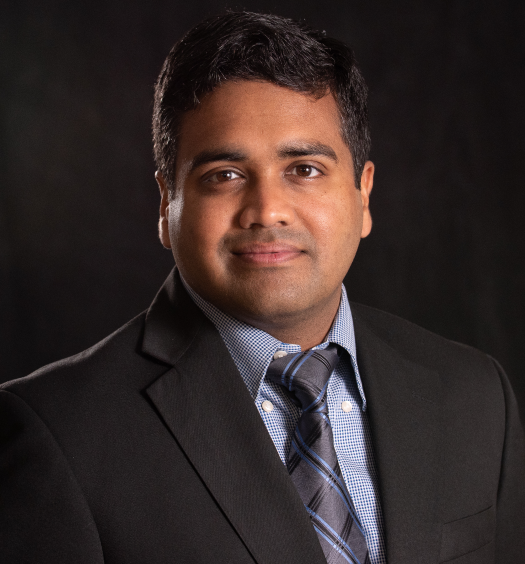 Dr. Badri Narayanan
Dr. Badri Narayanan
Assistant Professor, Mechanical Engineering, J.B. Speed School of Engineering, University of Louisville
Ph.D, Material Science, Colorado School of Mines
M.A., Engineering, Indian Institute of Science
Dr. Badri Narayanan is an Assistant Professor of Mechanical Engineering at the University of Louisville (since August 2018), where he leads the Predictive Materials Modeling Laboratory (PMML). Previously, he has held appointments at Argonne National Laboratory as Assistant Materials Scientist (2016-2018), and postdoctoral associate (2014-2016). His group is interested in utilizing multi-scale materials modeling, data-science, and machine learning to accelerate discovery/design of functional materials and interfaces relevant for applications in energy storage, neuromorphic computing, catalysis and nano-electronics. He is currently leading multi-year research projects on solid-state batteries, quantum materials, and electrochemical interfaces funded by the Department of Energy and Lam Research Inc. He is the recipient of Ralph. E. Powe Junior Faculty Enhancement Award from Oak Ridge Associated Universities (2020) and Early Career High Impact Science Achievement Award from the National Energy Research Scientific Computing Center (2017). Dr. Narayanan earned his Ph.D. in Materials Science from Colorado School of Mines, USA in 2013, a Master’s degree in Materials Engineering from Indian Institute of Science in 2008, and a Bachelor’s degree in Metallurgical and Materials Engineering from National Institute of Technology Karnataka, India in 2006.